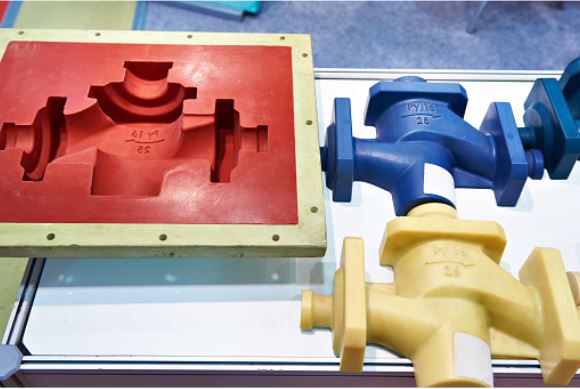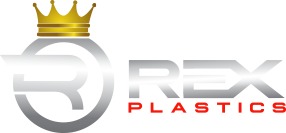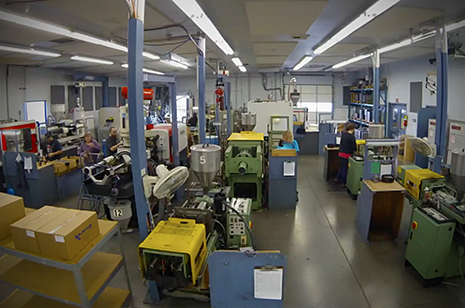- BY nwmcadmin
- POSTED IN Uncategorized
- WITH 0 COMMENTS
- PERMALINK
- STANDARD POST TYPE

Acrylonitrile butadiene styrene, ABS, is a common thermoplastic polymer plastic used in injection molding. It is relatively inexpensive and easy to mold. This sort of process is usually used in consumer goods and pieces for electronics. ABS injection molding is not resistant to sunlight and weather, so this choice may not be the best solution for outdoor products. Yet, there are additives in the process of ABS injection molding that can help build its resistance to sunlight and weather exposure.
What is ABS plastic?
ABS stands for acrylonitrile butadiene styrene. Acrylonitrile gives the plastic heat and chemical resistance. Butadiene is an organic compound that imparts toughness and impact resistance. Styrene is a chemical that produces the gloss, strength, and processability of a plastic product.
Can ABS injection be molded?
Yes, ABS injection can be molded and is a commonly used molding material. Because of the three main ingredients, ABS provides terpolymer that is a robust combination of features. Also, filler materials can be added to injection-molded ABS to build resistance against ultraviolet light and to add strength to the plastic part.
HIPS vs ABS injection molding
High impact polystyrene (HIPS) is an impact-resistant polystyrene product that is created by adding butyl rubber particles to polystyrene. HIPS is one of the cheapest engineering plastics, but when compared with ABS, the glossiness and performance of the material are relatively poor. Even though the impact resistance of HIPS is higher than other materials, it is not as good as ABS.
Nylon vs ABS injection molding
Nylon is a very tough material that can withstand higher temperatures than ABS. Both of these plastics are engineering plastics like HIPS, but they have a few differences that set them apart. Nylon is more expensive than ABS. The melting point of ABS is lower than that of Nylon, and both plastics have a smooth surface, but Nylon’s surface offers low friction. Nylon also has a better chemical resistance than ABS. With a lower viscocsity, Nylon can flow more easily, and this good lubricity leads to better wear resistance.
Clear ABS injection molding
Most ABS resins are naturally translucent to opaque. They can also be produced in transparent grades too. These grades are available for extrusion, blow molding, foam molding, injection molding, and thermoforming. Yet, it is important to note that clear ABS does not have the same impact resistance or heat resistance as higher grades of ABS. On the other hand, clear ABS can outperform SAN, PMMA, and polystyrene for impact and heat resistance.
ABS injection molding services at Rex Plastics
At Rex Plastics we offer several injection molding services and more. Rex Clark founded Rex Plastics in 1971, today it is still family-owned and still believes in the importance of locally sourced injection molding. As a full-service plastic injection molding contract manufacturer, we will always operate with integrity and pursue the best interest of our customers.


